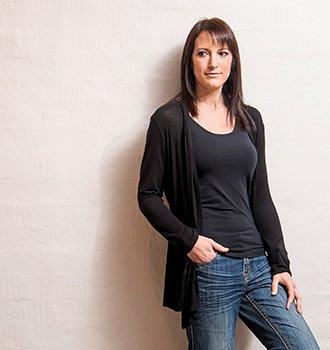Latest News Archive
Please select Category, Year, and then Month to display items
28 October 2024
|
Story Zingaphi Mdletshe
|
Photo Supplied
 Kovsie ACT volunteers undergo leadership and skills training, preparing them to engage in community service and develop sustainable solutions to societal challenges beyond university life.
Kovsie ACT volunteers undergo leadership and skills training, preparing them to engage in community service and develop sustainable solutions to societal challenges beyond university life.
The University of the Free State’s (UFS) Kovsie ACT office continues to foster a spirit of humanity among students through a leadership and skills development training initiative that is aimed at not only developing them as volunteers but also as conscientious individuals who understand the value of helping others.
“The leadership and skills development training is a platform that the ACT office utilises to ensure that volunteers are equipped with the necessary skills needed to fulfil their duties as Central ACT Committee members, thereby facilitating a smooth term,” said Teddy Sibiya, Senior Assistant Officer at Kovsie Support Services. “We aim to impart knowledge that will be beneficial during their term and beyond their involvement with the ACT office.”
Touching on how the training aligns with the broader goals of the Kovsie ACT Volunteer Programme for the term 2024/2025, Sibiya emphasised that sustainability has always been at the heart of Kovsie ACT and that their activities provide opportunities for students to engage in community service and participate in environmental initiatives to assist civil society organisations. The programme also encourages students to become active global citizens by addressing transnational issues such as food insecurity and socio-economic challenges.
“I am excited about the opportunity to be part of a movement that influences not just the lives of students but also reaches beyond the university, promoting innovative and sustainable solutions on a larger scale,” said Raylene Bussack, a Central ACT Committee volunteer. “My goal is to inspire and empower others to join us in this vital work to make a lasting difference together.”
In addition to leadership training, Kovsie ACT offers various programmes designed to enhance students' skills in areas such as communication, teamwork and project management. These skills are essential for their roles within Kovsie ACT and for their future careers. By participating in community service projects, students build valuable relationships and gain practical experience that will benefit them upon graduation. The initiative ultimately aims to create a culture of giving back among students while enriching their university experience.
#Women'sMonth: Lack of HIV education still affects children
2017-08-17

Dr Nickie Goedhals, Senior Lecturer and Pathologist
in Medical Microbiology and Virology at the UFS.
Photo: Sonia Small
“Despite all the advances in the management and prevention of HIV, children still become infected every day, often due to lack of education and access to health care.” This is according to Dr Nickie Goedhals, Senior Lecturer and Pathologist in Medical Microbiology and Virology at the University of the Free State (UFS).
Study published in UK medical Journal
A case study she was part of and published in the UK medical journal The Lancet in 2012, demonstrates the transmission of HIV to a child through surrogate breastfeeding. This study is one of the many highlights in the young researcher’s career. She received her first rating from the National Research Foundation (NRF) in 2017 for the work she has done in Medical Virology over the past eight years.
According to the above-mentioned study, only about 1% of infants in South Africa are being breastfed by a surrogate. However, results from a study in the Free State showed that shared breastfeeding by a non-biological caregiver was the most important factor associated with HIV infection in discordant mother-child pairs. Therefore, continued education about the risk of HIV transmission is needed.
Dr Goedhals is also continuing with research on HIV by looking at HIV drug resistance. She is in the process of starting new projects focusing on HIV infection and drug resistance in infants.
PSP helped with NRF-rating
She says, although her NRF Y2-rating is the starting point of a research career, it shows that she is heading in the right direction, and it “gives access to research funds through the NRF for future projects.” Other important research she conducted was on Crimean-Congo haemorrhagic fever – the study for her PhD.
The Prestige Scholars Programme (PSP) at the UFS is the reason that she applied for the rating. “With all the service delivery, teaching, and administrative responsibilities of academic medicine, it is easy to lose focus. The PSP has really helped to create a focused and stimulating environment for research.” According to her, the PSP also provides access to a network of peers and senior staff at the UFS, as well as exposure to national and international experts.